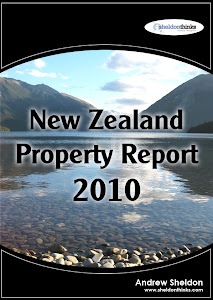New immigrants to New Zealand qualify for the automatic tax exemption on their individual overseas income under the Taxation Act 2006. The tax exemption is targeted to encourage prospective migrants to consider New Zealand as a viable and competitive place to live and work. The exemption also applies to returning New Zealanders who have not been resident for tax purposes for at least 10 years before their arrival.
It operates to exempt all “transitional residents” from New Zealand tax on their foreign-sourced income by treating it as being derived by a non-resident. A person will be deemed a transitional resident if on or after April 1, 2006:
1. They have a permanent abode in New Zealand, and
2. Immediately before acquiring that permanent abode, they were continuously non-resident for at least 10 years, and
3. They have not previously been a transitional resident.
It is possible for a person who has visited New Zealand before acquiring a permanent abode – for example, to attend interviews or to look for housing – and who would otherwise be deemed resident in New Zealand (because they had been in the country for more than a total of 183 days in any 12-month period) to benefit from the exemption.
The transitional resident status will last for four years, ending on the last day of the 48th month after the month in which the person acquired a permanent abode in New Zealand; or the day the person ceases to reside in New Zealand. After expiry of this period, the person is treated as a resident, and their foreign-sourced income becomes liable to income tax in New Zealand.
The only types of foreign income not tax exempt in New Zealand are those derived from overseas employment performed while receiving the exemption, and business income relating to services performed offshore. All other foreign-sourced amounts (including interest, dividends, and employment and bonus income from previous employment) derived by the transitional resident are exempt.
The new legislation also provides that, where a settlor of a foreign trust becomes a transitional resident in New Zealand, they or any beneficiary or trustee of the trust will now have up to five years to elect for the foreign trust to become a qualifying trust. A foreign trust means that no settlor is resident in New Zealand from when the trust is settled until a distribution is made. A foreign trust is not required to pay New Zealand tax on its foreign-sourced income. If the election is not made, the foreign trust becomes a non-qualifying trust, with distributions of accumulated income or capital derived taxed at a penal rate of 45 percent. Previously, if a settlor of a foreign trust became resident in New Zealand, any of the settlor, trustee or beneficiary had only one year to elect to convert the foreign trust into a qualifying trust.


